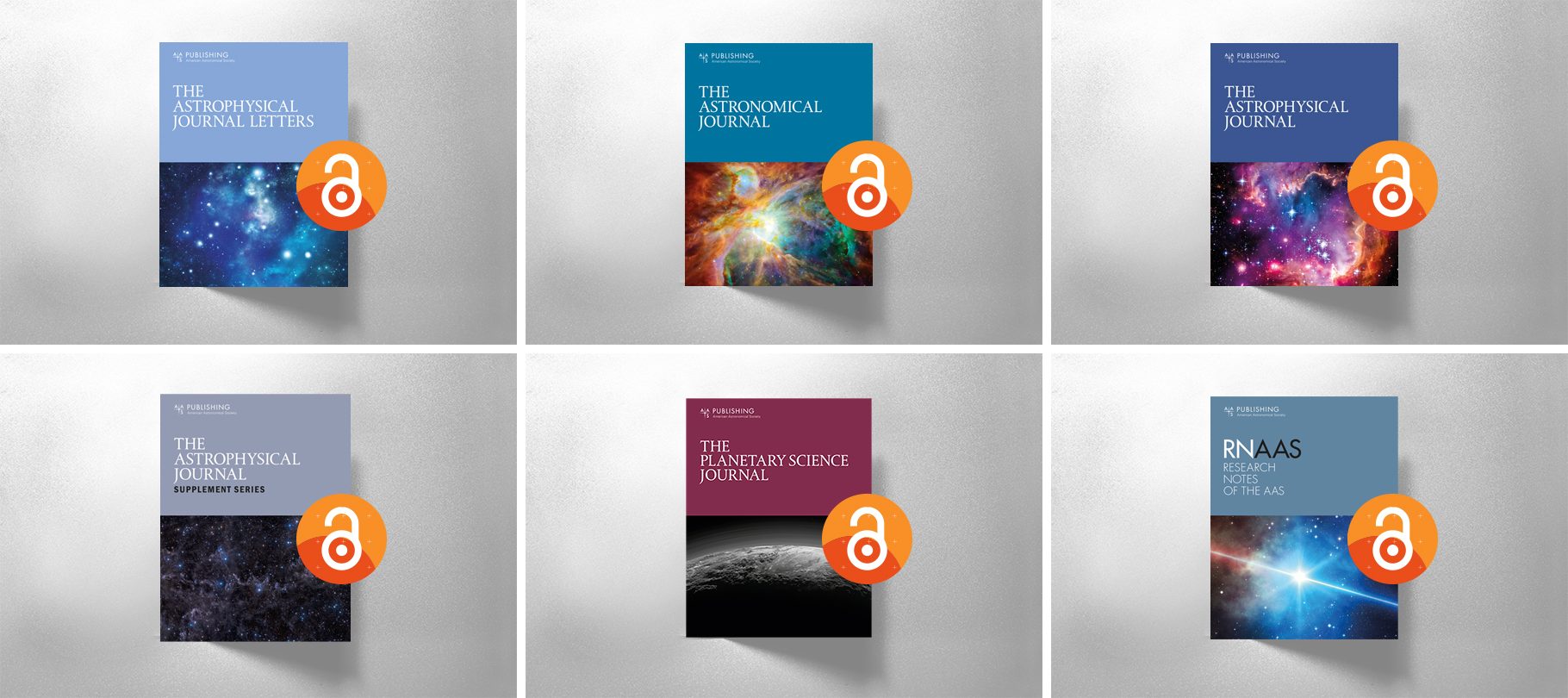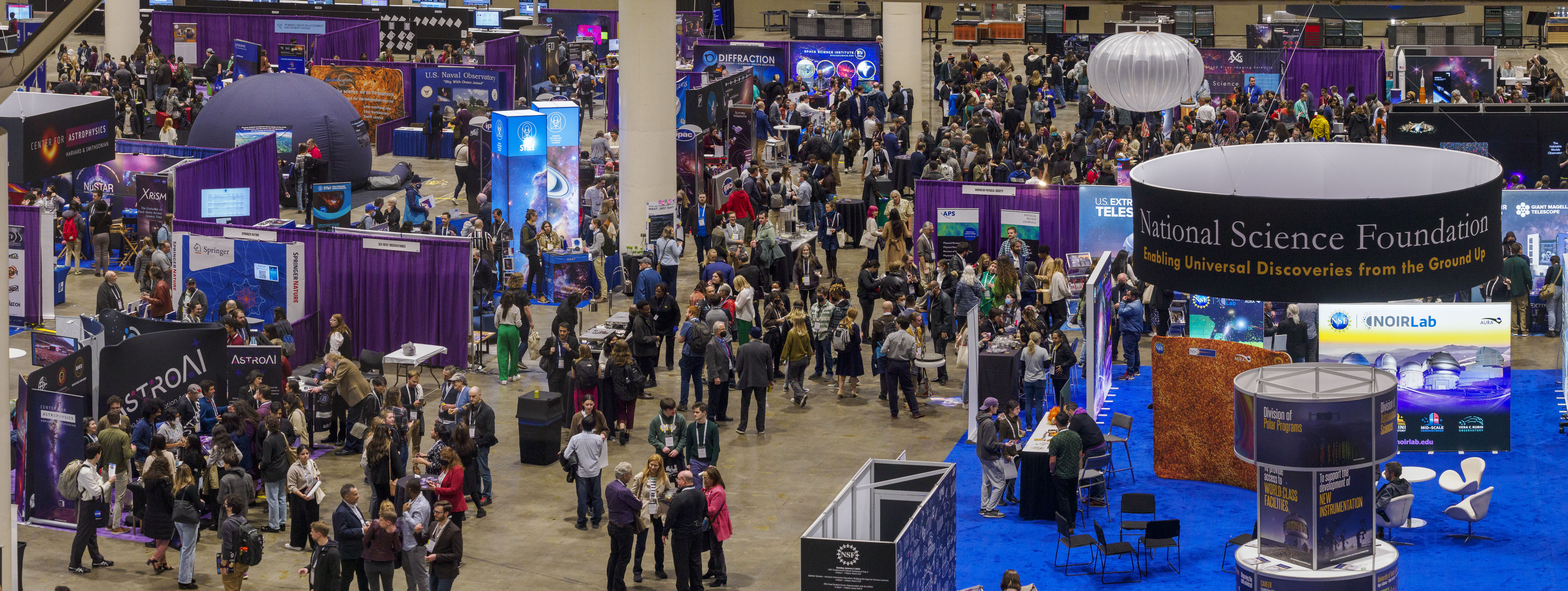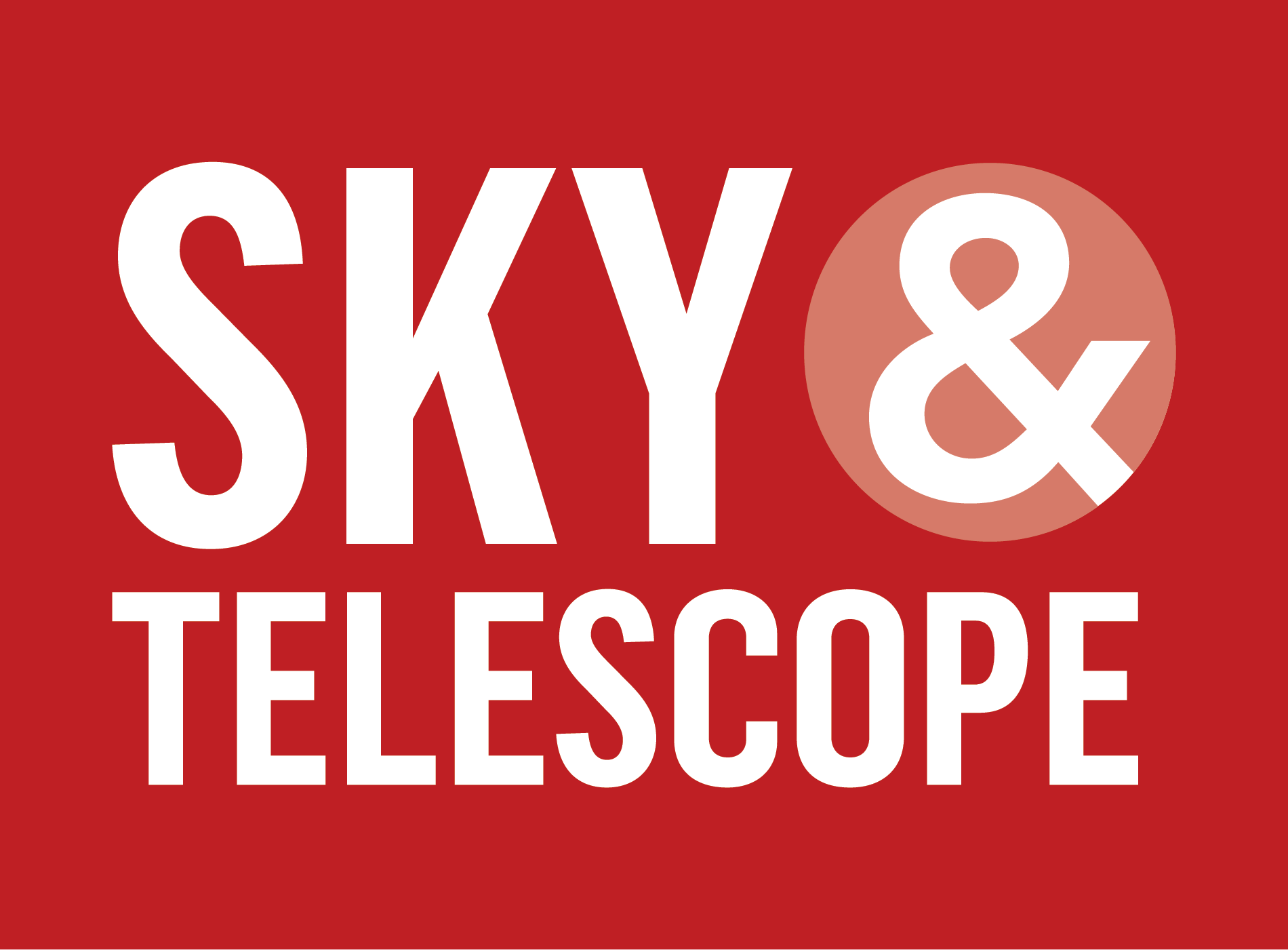Who We Are and How We Support the Astronomy Community
The mission of the AAS is to enhance and share humanity’s scientific understanding of the universe as a diverse and inclusive astronomical community, which we achieve through publishing, meeting organization, advocacy, education and outreach, and training and professional development.
Publishing
The AAS publishes the leading international journals in the disciplines of astronomy & astrophysics, heliophysics, and planetary sciences. Our highlights journal, AAS Nova, and short results journal, Research Notes, represent innovative new ways we highlight the research results of the community. Our newest journal, The Planetary Science Journal, is growing each year and has recently received a significant impact factor, making it the highest impact title for the publication of results in the Planetary Sciences.

The AAS has changed its business model to be fully open access. This means authors pay for the costs of publication of their manuscripts in the form of Article Processing Charges (APCs) and their work is then free to be read by all. The Society maintains a substantial pool of funds to assist authors who may not have funds available to pay these charges to ensure equitable access to the scholarly literature.
Meetings

The AAS organizes several major conferences each year in the astronomical sciences, including the largest annual meeting in astronomy, the AAS winter meeting, regularly boasting more than 3,000 attendees. In addition, we support the meetings of our six topical divisions and topical conferences as part of the AAS Topical Conference Series (AASTCS).
Public Policy
The AAS maintains an active program in public policy to influence policy decisions that impact our science, while actively engaging and informing our community about what is going on and how they can take positive steps to participate in the policy process.
Other Services
The AAS seeks to support those seeking careers in astronomy or with astronomy backgrounds through the AAS Job Register and other career services including workshops at our meetings and links to information helpful to those considering a career in the astronomical sciences.
The Society strives to support our community through volunteer engagement in focused areas of concern. Our committees, working groups, and task forces have all had significant impacts in areas from the status of women in astronomy (CSWA) to the protection of astronomy and the space environment (COMPASSE). A full list of these groups is available online. We are actively seeking new volunteers to help us achieve our mission. If you are interested, let our Secretary know.
The Society has long sought to support the work our members do in education and outreach and continue a variety of programs in this area. The Society has long been a supporter of the ComSciCon program, which seeks to train early-career astronomers in science journalism (and budding science journalists), and the Astrobites blog (and through the founders of that effort, several other "bites" sites).
Sky & Telescope
In 2019, we acquired Sky & Telescope magazine, the foremost magazine worldwide for engaged amateur astronomers. We will continue to run the magazine with editorial independence and focusing on the community they serve, while seeking to expand that community and enhance the engagement of professional astronomers with the amateur community.
Sky & Telescope also runs many astronomically-themed tours each year focusing on travel to locations to experience unique astronomical events or visit astronomical facilities or historical sites. In addition, Sky & Telescope publishes a wide range of books, both under its own imprint and the Willmann-Bell imprint. The AAS acquired Willmann-Bell, Inc. in 2022, and is honored to be continuing the legacy of Willmann-Bell publishing by selling and publishing their robust catalog of astronomy books. These are available through Shop@Sky, an online web store, along with other educational materials, logo items, and other astronomy-related merchandise.
Ethics and Policies
The Society has taken steps to define clearly what acceptable professional behavior looks like in our field. From our Anti-Harassment Policy, to our Code of Ethics, to the guidance we give our authors and reviewers, the Society believes that establishing a safe, welcoming environment at the highest possible level of professionalism is important for moving our field forward. We respond quickly to reports of behavior inconsistent with our policies and have taken corrective action to ensure individuals act in accordance with them in the future. Doing so is one of our core values and central to our mission and purpose.


